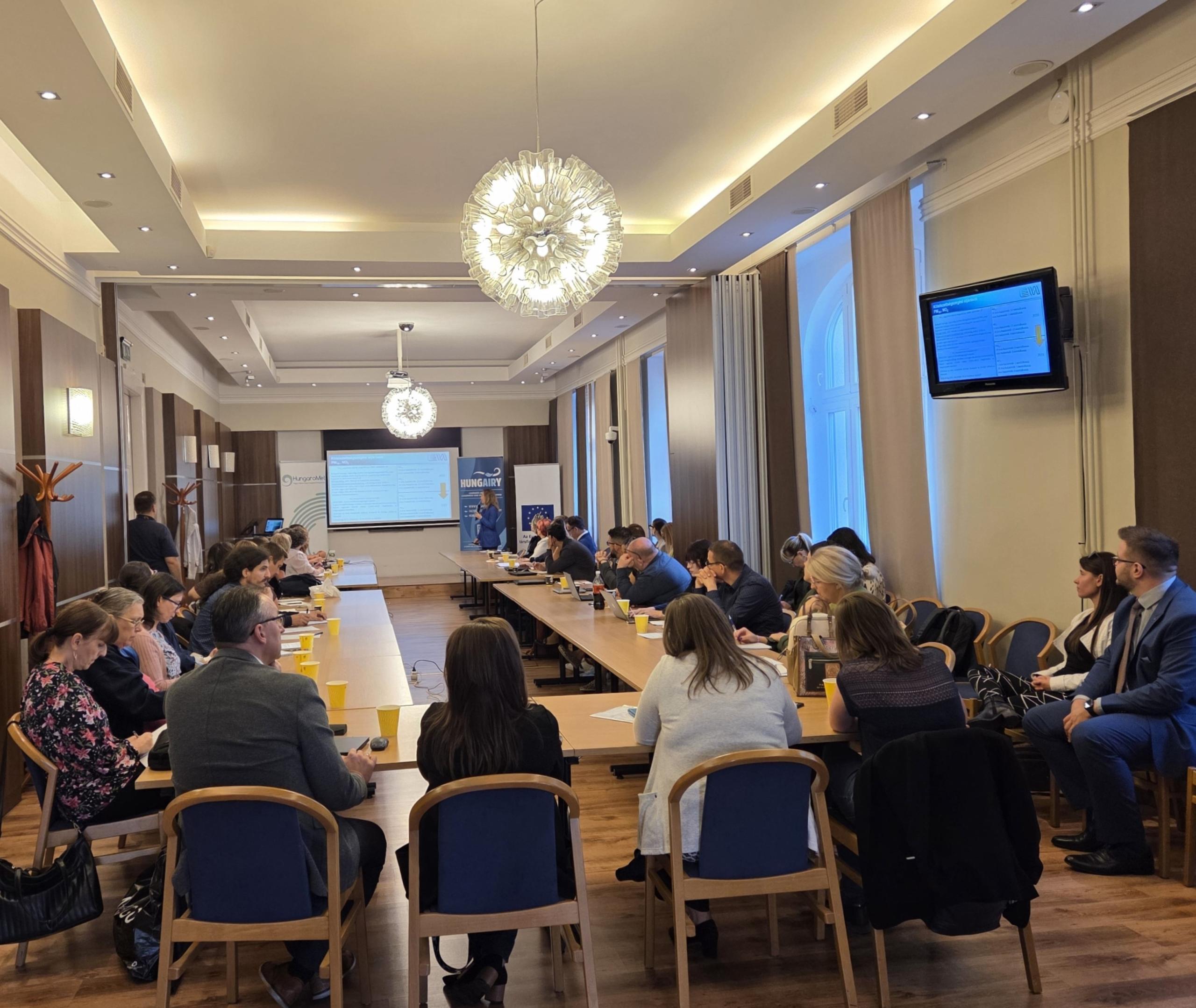Roundtable Discussion on Air Quality Plans Responding to the New EU Directives

On 17 September 2025, the HungAIRy LIFE Integrated Project held its third roundtable discussion focused on air quality plans, which are reviewed every two years by the partner municipalities participating in the project. The event brought together Nikoletta Keszthelyi, Deputy State Secretary for Environmental Protection at the Ministry of Energy, representatives of HungAIRy partners, and staff from government offices to explore opportunities for more effective collaboration.
The primary objective of the HungAIRy project is to improve air quality in eight regions and ten Hungarian municipalities, with a strong emphasis on the regular, biennial revision of their air quality plans.
Following the second roundtable held in 2023, this year’s meeting focused on joint evaluation of experiences, showcasing best practices, identifying challanges, and finding solutions to overcome them.
Nikoletta Keszthelyi, Deputy State Secretary for Environmental Protection at the Ministry of Energy, gave a presentation outlining the current status of the infringement procedure concerning PM10 emissions in Hungary. She also reviewed the measures already taken and those planned, and addressed upcoming legislative changes in connection with the revised EU Ambient Air Quality Directive.
Katalin Lantai Uramné, PhD, professional coordinator of the Municipality of Miskolc, represented the project’s Miskolc partner. In her presentation, she provided insights into the process of preparing air quality plans, highlighting the responsibilities and obligations of the stakeholders involved. She also identified critical elements that require special attention during the planning phase and put forward several proposals, emphasizing the importance of cooperation, dialogue, and coordination at the county level.
Ildikó Babcsány, head of the Eco-Manager Knowledge Centre at HungaroMet Nonprofit Ltd., the project's coordinating body, guided participants through the official methodology developed to support the revision of air quality plans.
Barbara Bezegh, Project Manager of the HungAIRy LIFE Integrated Project, opened the event and also acted as the session’s moderator.
Following the presentations, participants engaged in a lively exchange of experiences. The newly developed methodological guide was unanimously welcomed and considered a valuable support tool for future planning.
The third professional roundtable of the HungAIRy project concluded successfully, laying a solid foundation for the harmonisation of air quality plans, assessment of data collection needs, and the strengthening of cooperation between professional and regulatory stakeholders.